Building a better future with measuring technology
Case study

Author: Renata Barradas Gutiérrez
Houses, buildings, schools, bridges, roads and any infrastructure you can think of stand not only in the material and structure that support them but in the work and know-how of the people who built them. Qualified and skilled labour has never been more vital for not only the construction industry but for the economical well-being of societies and countries. Craft trade schools, vocational schools and trainee programs can provide the valuable hands-on and work experience needed for construction projects and building construction companies.
The Rural Development Organisation (RDO), founded in 2012 and established in Tanzania, is aware of the life-changing potential of learning a new trade. RDO, in partnership with Eine Welt Gruppe Schlins - Röns, works to improve the long-term living conditions of the people in the regions of Mdabulo and Kilolo, in the highlands of Tanzania, through diverse programs based on the principles of sustainability and knowledge transfer. RDO is opening opportunities to young men and women through vocational training and building projects – undertakings where Leica Geosystems equipment has proved useful.
The transformative power of lasers and levels
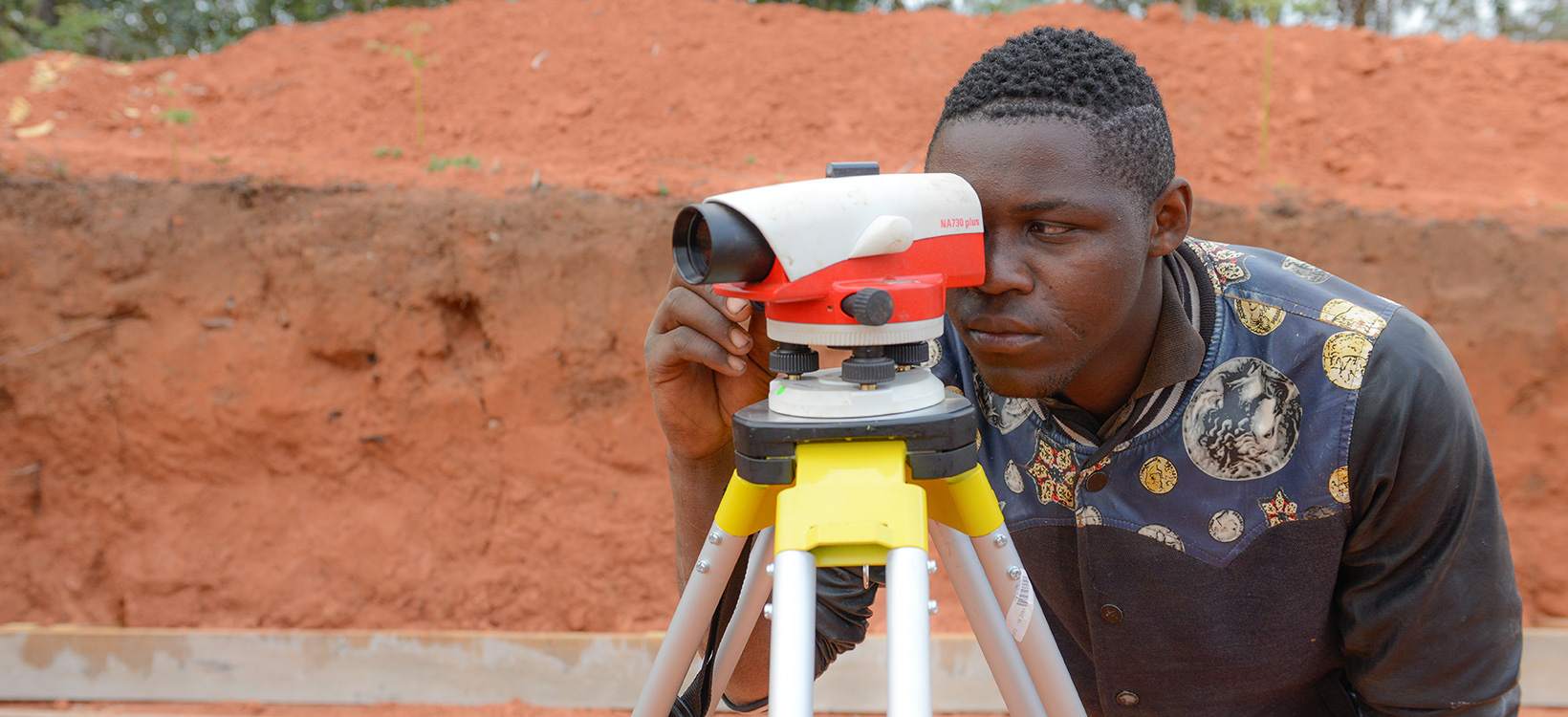
For young people in the region, mainly living from subsistence farming, RDO training centre is a hub of opportunities to expand their prospects by receiving training on diverse craft trades and sustainable agricultural practices. RDO’s beneficiaries usually come from an agricultural holding and completed compulsory schooling but couldn’t continue their studies. The training provided by RDO in specialised areas includes practical and theoretical courses and is completed by a state examination.
“Craft trades have no tradition here, which is why craft training places are rare, and the infrastructure for such training is generally very poorly developed. In addition, there are only a small number of secondary schools, which are only affordable for a fraction of the population,” explained Johannes Rauch, project manager at Eine Welt Gruppe Schlins - Röns.
To support the mission of RDO, Leica Geosystems donated a Leica NA730 automatic level, a Leica Rugby 800 Series rotating laser and a distance metre to the organisation. Since then, the equipment has been key to support RDO projects.
“We use Leica Geosystems equipment very frequently and very often. This has made our work much easier. In the training for building craftsmen, these devices increase the value and the modernity of the training very much,” stated Rauch.
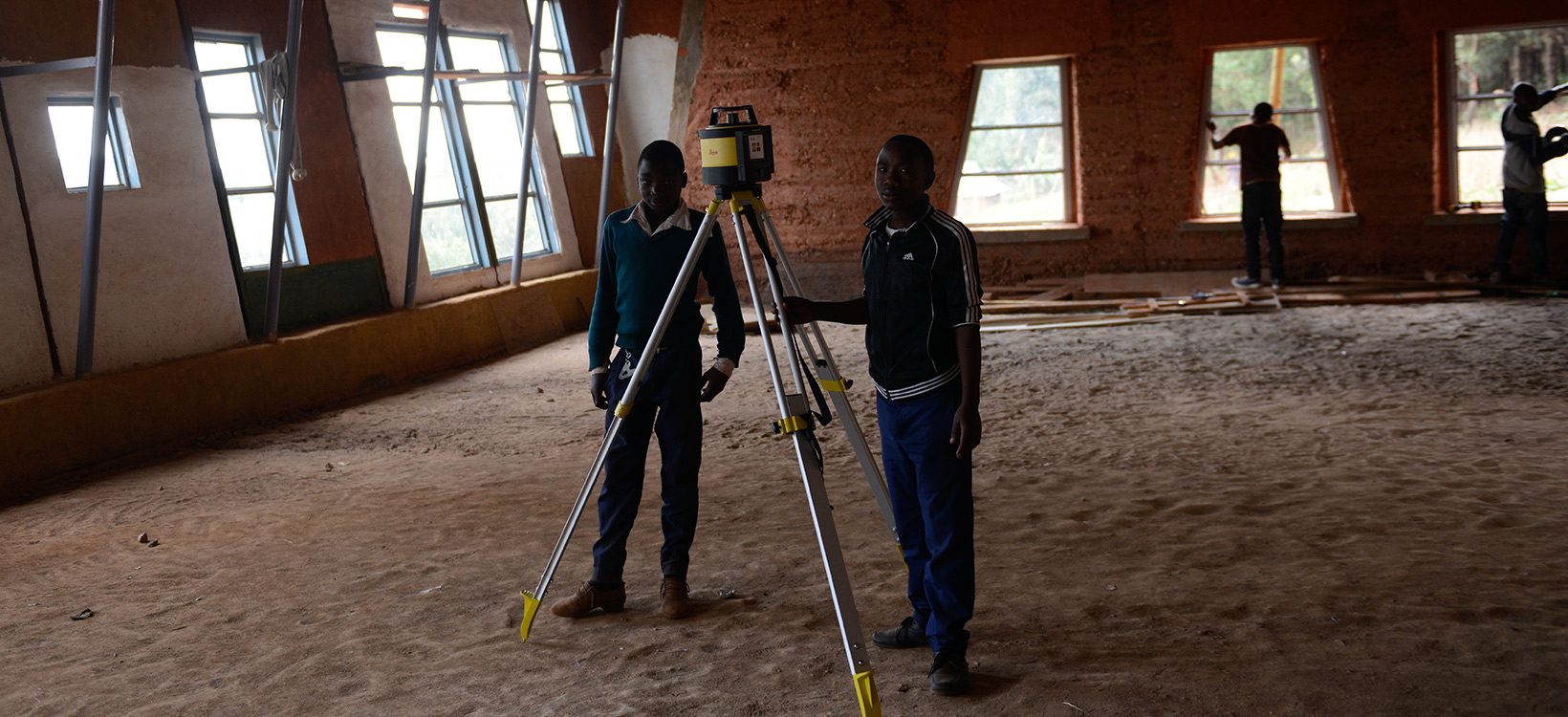
RDO - Centre in Mdabulo – A multi-purpose rammed-earth building built together with graduates and pupils of the RDO - craftsmen school established. The architecture project was provided by ETH Zurich students.
At RDO’s course centre in Mdabulo and through hands-on community projects, students learn the basics of construction and acquire skills using the automatic level, rotating laser and distance metre. Students learn to use the Rugby Series laser for different applications including, land levelling, grade checking, tie in slopes, vertically align formwork, and set out walls. Likewise, using the NA730 automatic level, learners understand how to measure distances, set as-sign datum lines, define height differences and read heights.
“The training takes place through regular lessons at the building craftsmen's school. The use of laser and level equipment is now firmly anchored in the curriculum. Every year, about 40 students are trained in the use of lasers, levels and distance metres,” said Rauch.
Delivering drinking water, building better schools
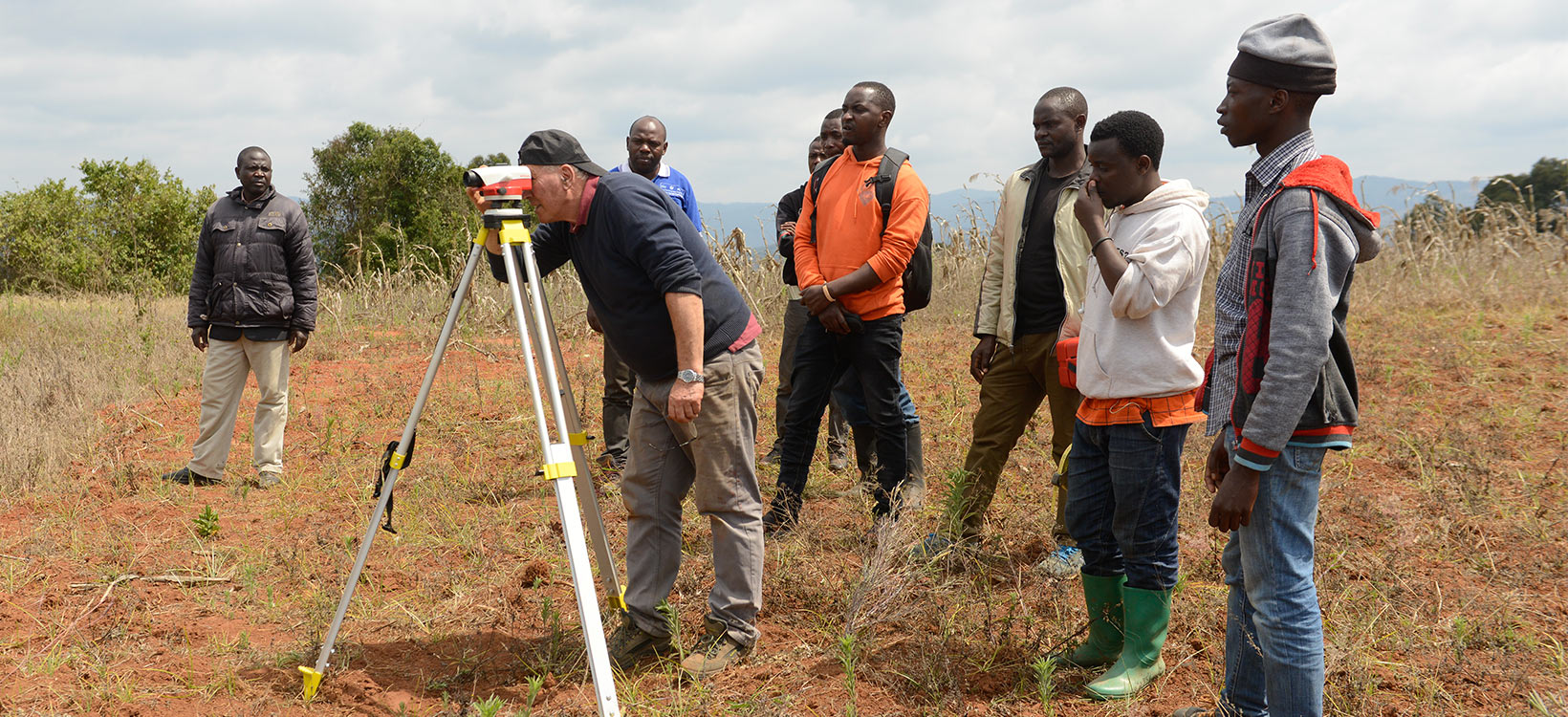
Leica Geosystems equipment is also used in the construction of the region’s infrastructure, including schools, buildings and water supply works. As of today, three water supply concrete tanks have been erected and four school buildings at two school locations are currently being built.
“Leica Geosystems equipment is particularly useful in the construction of our project buildings, such as school buildings, student hostels, craft workshops, administration buildings, agricultural stables, teaching kitchens, teacher's accommodation, water tank construction, pump houses and field surveying for water pipes,” said Rauch.
A key programme of RDO is the construction and management of drinking water facilities in the villages. Geared with Leica Geosystems equipment, RDO and Vorarlberg experts together with the villagers, dug water pipes from the spring catchments into the villages, wells and founded water cooperatives.
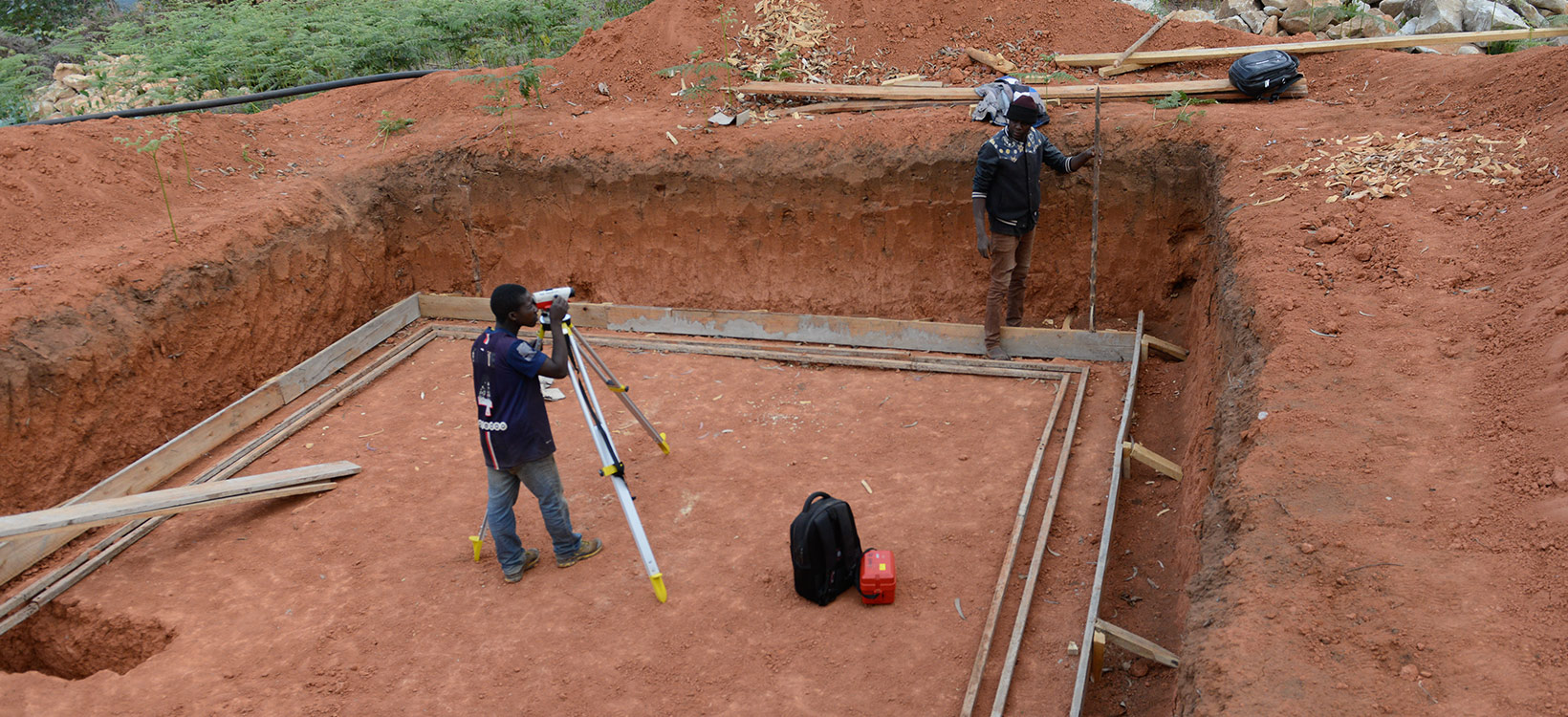
Surveying the construction site of an elevated tank in the village Isele, Tanzania, to provide water supply.
Planning, digging and building a water supply infrastructure in a hilly terrain with deep valleys and heights is not an easy task. To do it right, the NA730 automatic level is used over long distances of up to 3.5 to 4 kilometres to measure foundations and precisely plan pipe-laying terraces in connection with gravity pipelines.
“Previously, the foundations were done with a slat and spirit level or with a cord spirit level. Deviations up to 15 centimetres at distances up to 15 metres were the rule,” said Rauch. “The use of the levelling device greatly simplified planning and made it safer. Also, we have succeeded in significantly improving the accuracy.”
Empowering people
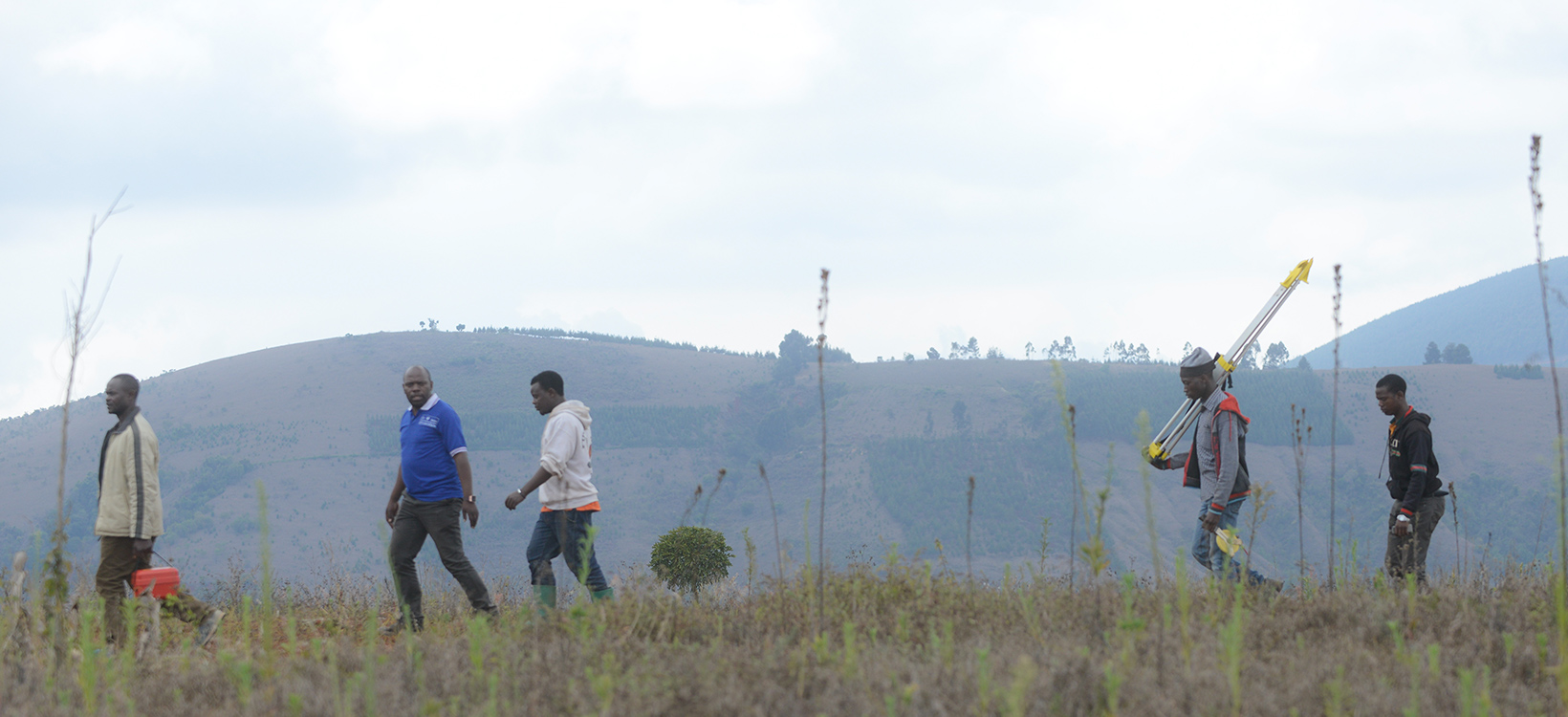
Empowering people and ideas to do their greatest good – this is the ultimate purpose behind Hexagon’s technology solutions. In this sense, RDO is leveraging construction tools in Tanzanian communities to deliver access to clean water, provide the structures so children attend school, and prepare a generation of young individuals with a trade and skills to face current and future challenges. Access to measuring and positioning technology has the transformative power not only to build the world around us but provides skilled labour the means to earn a livelihood.

























